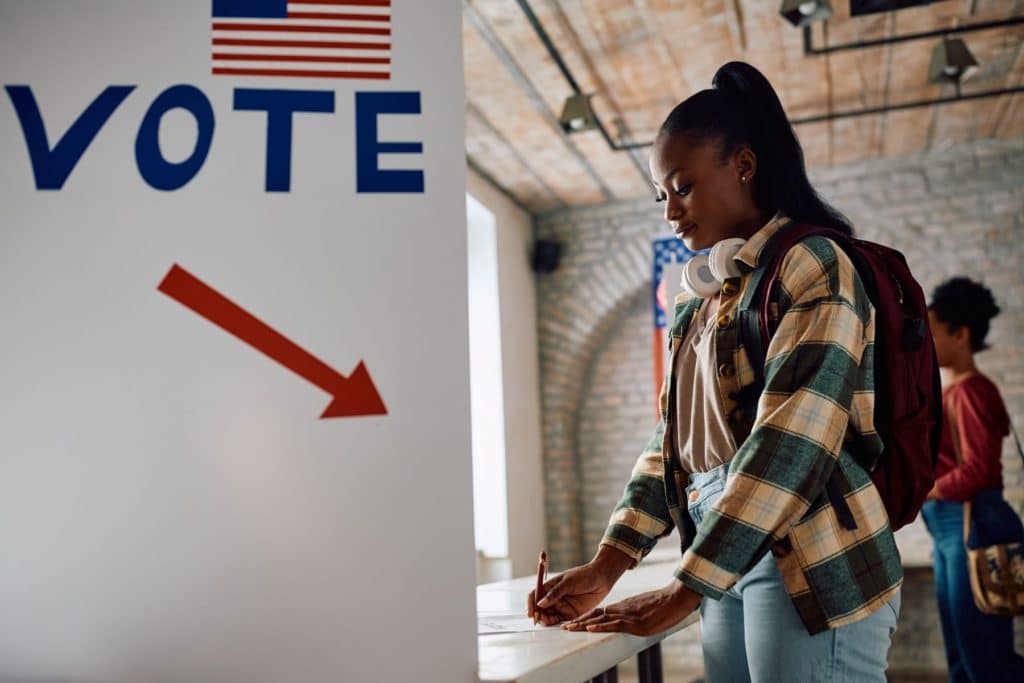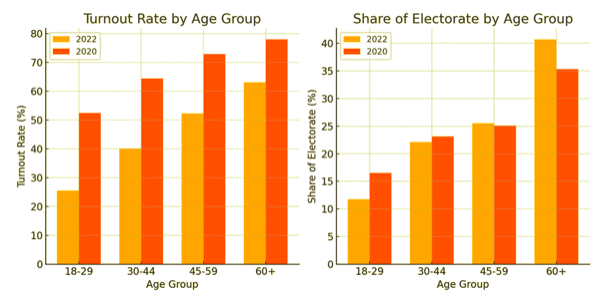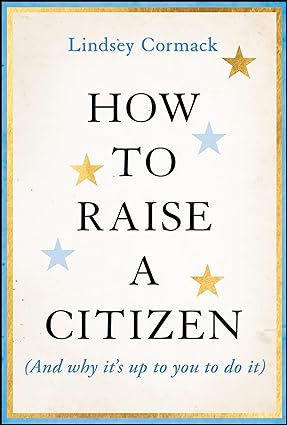Lindsey Cormack is the author of the book How to Raise a Citizen (And Why It’s Up to You to Do It).

Whether you’re looking at sending your kid to college for the first time or back after a summer at home, it’s time to talk to them about voting. For our 18- to 22-year olds, this is the first time they’ll be able to participate in a presidential election, but the hurdles of how to cast a ballot are high for new voters. As a college professor who gets to see a new set of students navigate elections and all the other transitions to adult life, I know they need your help.
In the last national election, the 2022 midterms, only 23% of eligible 18-29 year olds turned out to vote. The general election of 2020 had a higher share of young voters, with 50% of 18-29 year old participating, but the pandemic backdrop of that contest was different from this time around in ways that probably helped young people get to the polls. Unlike in 2020, kids who have graduated from high school with plans for college will be leaving the family home rather than staying home for zoom lessons. In 2020 states quickly adopted procedures to facilitate easier mail in balloting, but many have since returned to more restrictive mail-in and absentee voting policies. Though 50% is the highest share of young voters ever participating in a presidential election, it’s still far behind the voter participation rates of older voters, with 75% and more of those over 65 exercising their right.

[Data: US Census]
When young voters are registered, their voter turnout overall is better, but it’s not easy to navigate a new system for the first time. Registration is the administrative hurdle to voting that parents can help their children scale for the first time. Though youth voter registration varies a good deal by state (only 35% of young voters in Utah are registered, while 69% of young voters in Oregon are) on average, according to the most recent U.S. Census totals the share of 18-24 year olds registered to vote across the United States sits at 43.4%, while registration rates for those aged 65 and up ranges from 66% in Arkansas to 86% in Kansas.
Related: You Need These Important Legal Forms When Your Child Turns 18
There are, however, steps parents can take to ensure their children who are now of voting age can participate in our elections and will, therefore, be more engaged with politics in the U.S.
5 Ways to Ensure Your 18-Year-Old Can Vote
1. Encourage kids to register to vote with their college address as soon as possible after moving in. Registration deadlines vary by state, and many of them come quickly after move- in date.
2. Highlight the importance of checking out early voting options in states that offer it. Voting early helps remove barriers like transportation and waiting in long lines on election day.
3. Discuss open and closed primaries. In states with closed primaries, new voters must register with a party if they want to participate in a primary election.
4. Go to your child’s state registration website together or start at vote.gov. They may need information like their social security or driver’s license number depending on the state.
5. Let your kid know you’ll be willing to talk about the upcoming election with them and offer to look over a sample ballot together. Young voters who have someone willing to do a “practice round” with them are more likely to turn out on or before election day.
By having these conversations and providing the necessary resources, parents can set their children up for successful civic engagement and show that voting is a vital part of adulthood, but one that takes a little know-how to get done. These discussions also offer an opportunity for parents and children to learn more about each other—something that will feel nice before empty-nesting—and about the government, which is something that we all need to get better at. At a time when politics feels chaotic, grounding conversations about voting logistics is a gift to our kids.
Want to raise civic-minded teens who understand the importance of political engagement? Check out How to Raise a Citizen (And Why It’s Up to You to Do It) by Lindsey Cormack, now available. In her book, Cormack offers a practical approach to discussing political issues and the inner workings of the U.S. government with children, while encouraging teens to vote.

Parenting teens is a tough job, but you’re not alone. These posts might help:
Signs Your Teen May Be Suffering from a Lack of Executive Functioning Skills
50+ Awesome and Inspirational Quotes for Teenagers
Teens Hate These Five Questions, So Ask These Instead
Ten Heartwarming Things I Learned From Volunteering at the High School Concessions Stand
*This post may contain affiliate links where we earn a small commission for purchases made from our site.






na37u8